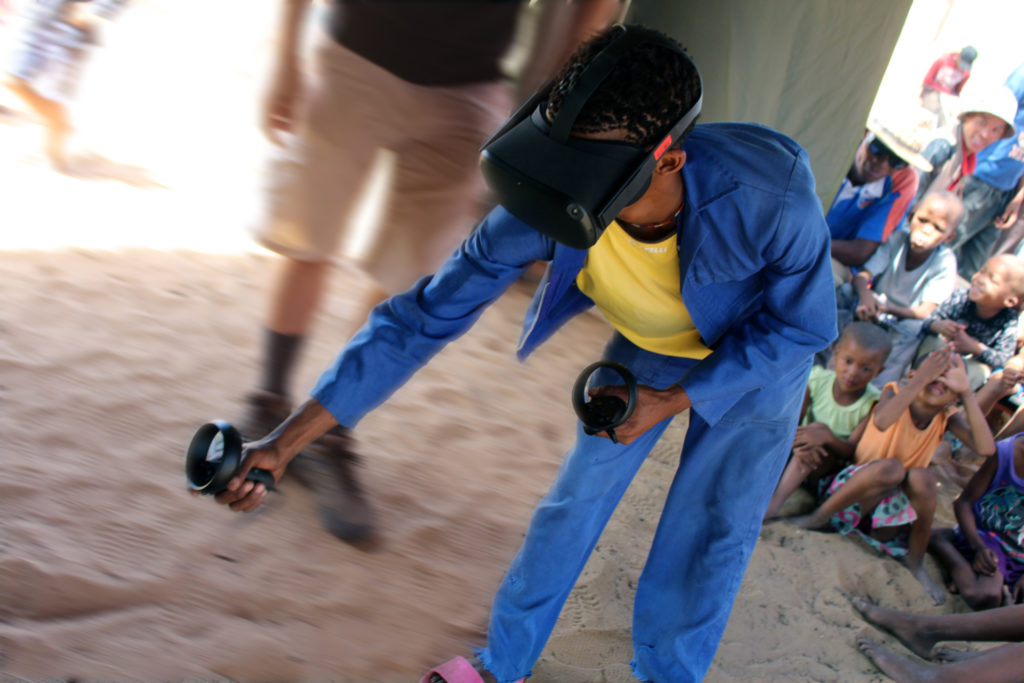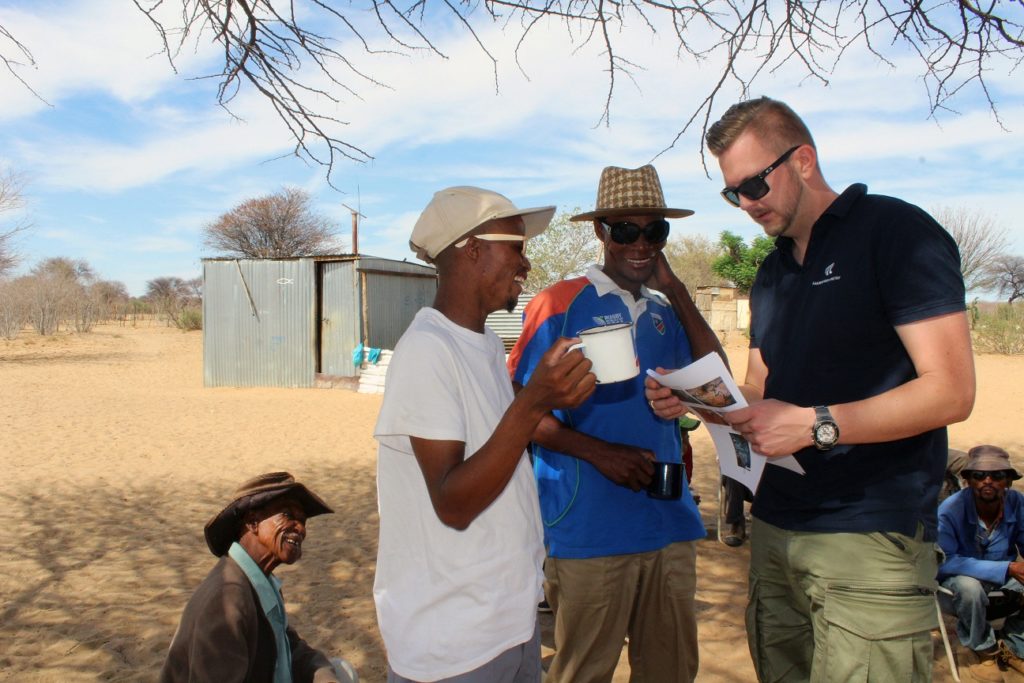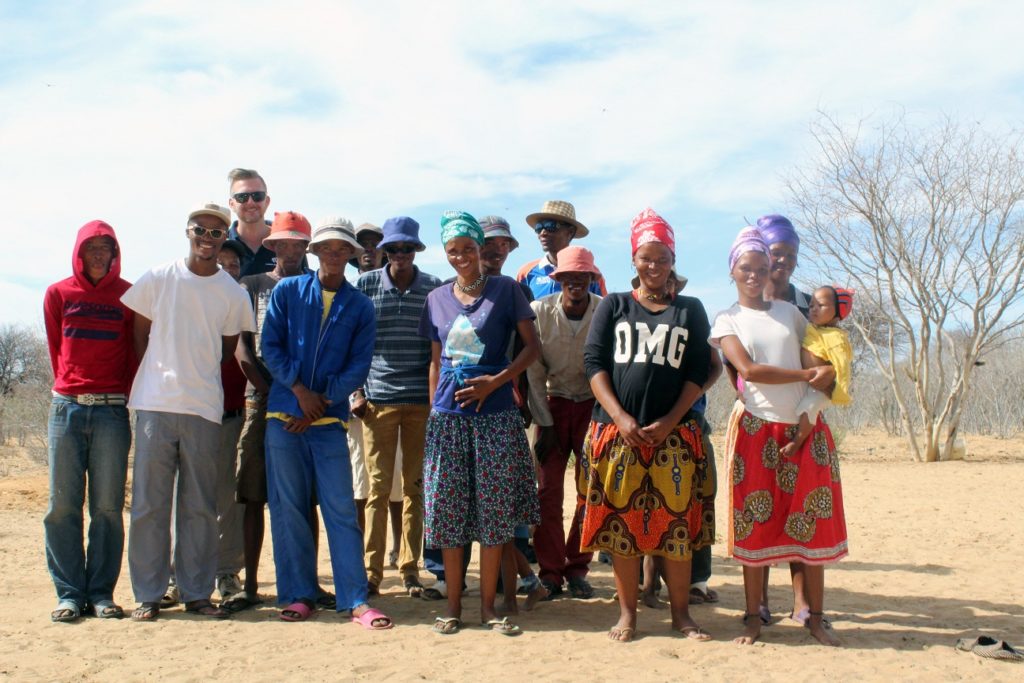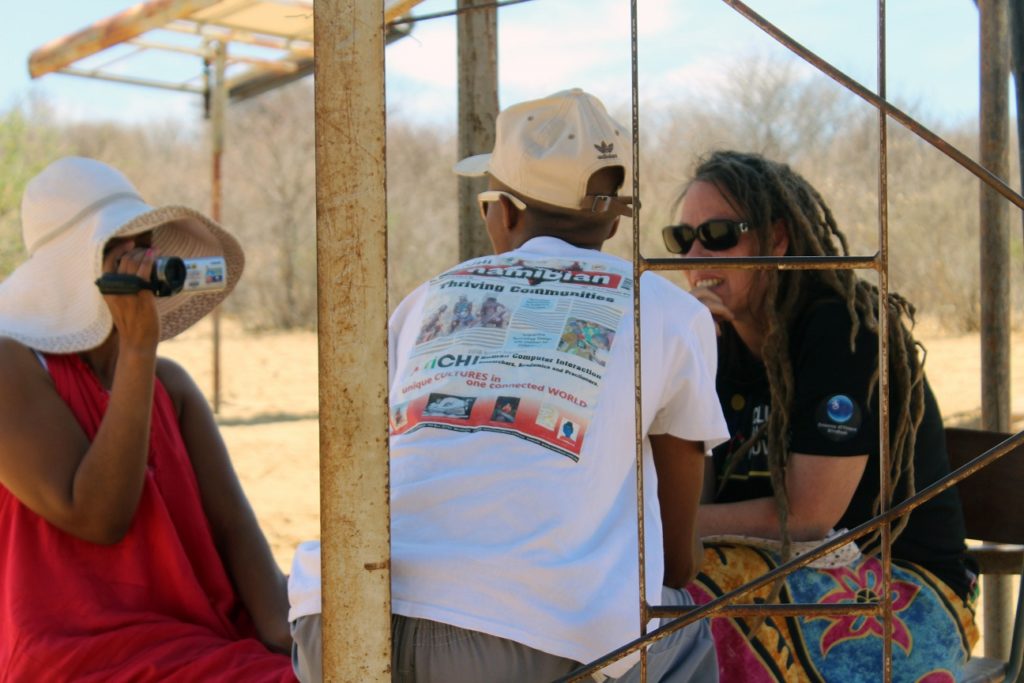
Tech Hub takes Virtual Reality to the San in Omaheke
When a community knows what a technology can do, they can ideate new uses for it. We asked people in the remote San community of Donkerbos what they would like to do with virtual reality.

‘N!a (It was good),’ April Magot beams as he takes off the virtual reality headset. He is back to his own life and to the sandy village square of Donkerbos, a remote San community in Namibia’s Omaheke region.
A group of community members, both adults and children, looks at Magot expectantly. All the while when he was immersed in the world of virtual reality (VR), they have been watching him – mostly laughing at the funny moves he made in the empty marquee tent that has been erected on the sand to function as a temporary VR area.
The young man was climbing on level ground, jumping around and pointing here and there with the hand controllers that belong together with the headset. To Magot, however, these moves made sense. He was climbing to reach the top of a cliff where he found rock art, which all of a sudden started moving. There was also a stone he had to pick up and throw. VR is a technology that generates realistic images, sounds and other sensations, like touch. The user gets immersed in a virtual world that has been programmed in the particular application the headset and controllers are connected to.
Millions of people all around the world, including in urban Namibia, play VR games. When they are at it, they look just as silly to outsiders as Magot to his fellow community members. The first consumer-grade headsets came out in the first half of 2016, and a home set now costs just slightly more than a Playstation.


On a global scale, taking VR to a community as remote as Donkerbos is a unique happening. Donkerbos (‘dark bush’ in Afrikaans) lies 260 kilometres from the regional capital Gobabis. The last 30 kilometres are on a sand track, which is only accessible by a 4×4 vehicle.
Most of the community members are San, Southern Africa’s indigenous people. The VR experience developed for them revolved around San cultural heritage, albeit it soon became clear that some of the stories referred to were not known in this particular community. The San are not a homogenous group. In Namibia alone, more than five different San languages are spoken.
The purpose of bringing VR to Donkerbos was to familiarize the community with the technology. Once they know what it is like, they can plan new uses for it and advise the developers how to get the cultural details right. The end goal is to find ways for how technology can be used to preserve indigenous knowledge and help communities keep their knowledge alive.
After a round of VR, April Magot and his fellow community explorers have a clear idea what they want to do. VR should be applied to traditional San games that the youth of today are no longer playing.

***
The VR content introduced to the Donkerbos community was developed by a group of Danish students supervised by Kasper Rodil, assistant professor with the Department of Architecture and Media Technology at Aalborg University, Denmark. Rodil, who is working in partnership with NUST, has been conducting research in Namibia since 2010. This activity was supported by Erasmus +.
Donkerbos is one of the Tech Hub’s long-term partner communities. For more information on our work with Donkerbos and other communities, kindly contact Technology Innovation Coordinator Marly Samuel, email marly18samuel [at] gmail.com.
Comments are closed.